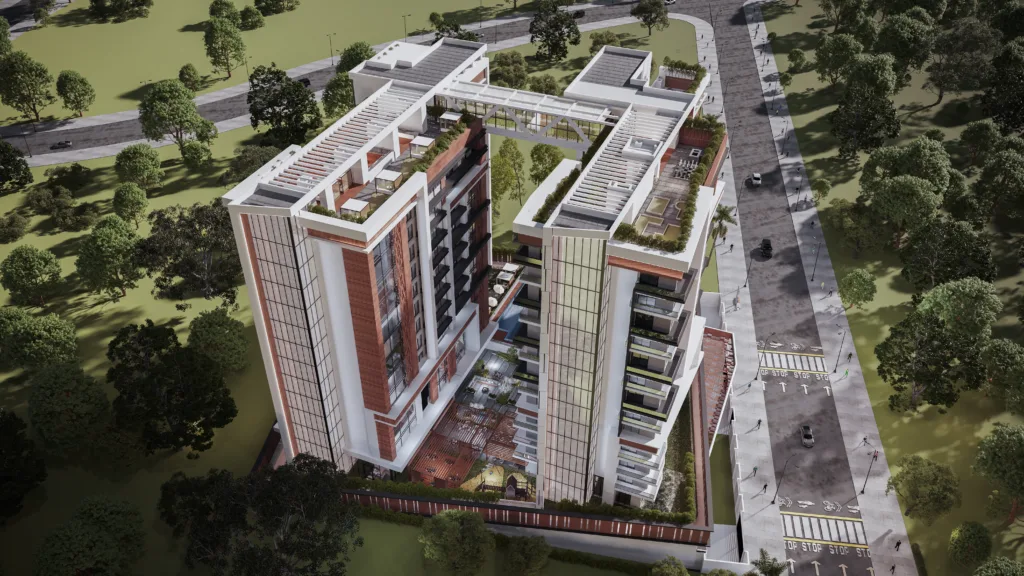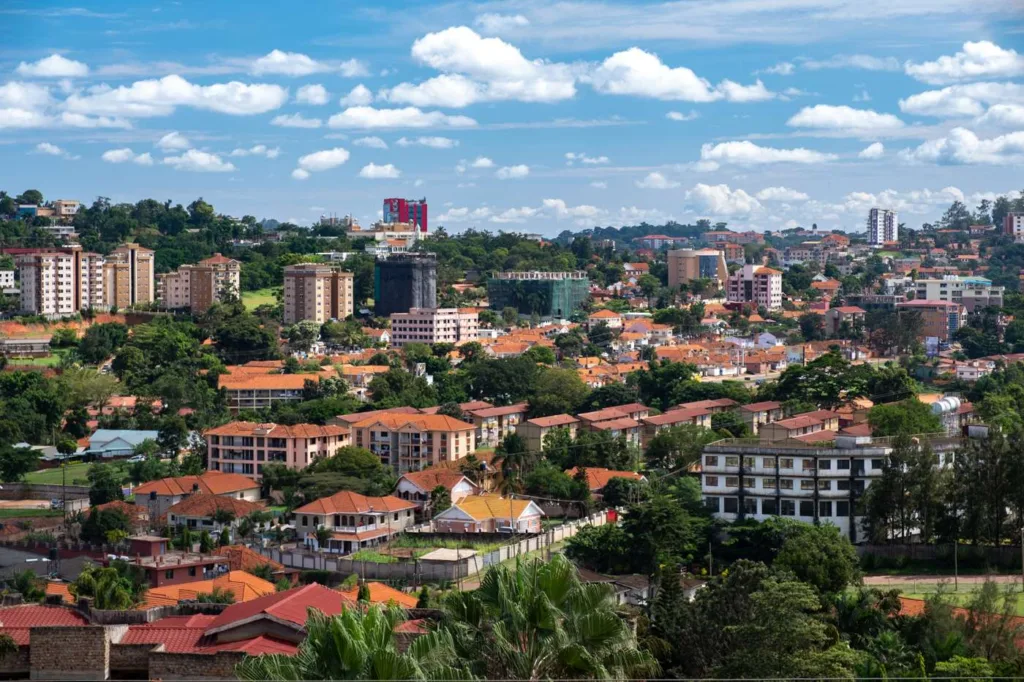We’ve been in the real estate business in East Africa for a long time.
Long enough to see markets come and go. Long enough to recognize when a market is genuinely positioning itself for significant growth. And long enough to know the difference between hype and real opportunity.
Right now, Uganda’s real estate market is experiencing something that only comes around every few years: a genuine convergence of factors that create an exceptional investment opportunity. It’s not hype. It’s backed by numbers, economic fundamentals, and emerging market dynamics that most investors are only just beginning to understand.
We want to share what we’ve learned, because if you’re considering real estate investment – whether in Uganda or across East Africa – understanding this market could fundamentally change your investment decisions.
The Rise of Luxury Real Estate in Uganda
Uganda’s real estate sector is a growing part of the services sector. In 2024, it contributed approximately 8% to the country’s GDP, according to The Africanvestor’s market analysis. That’s not insignificant. That’s a major economic driver, and it signals that real estate isn’t just a side investment – it’s central to Uganda’s economic story.
But the luxury segment specifically? That’s where the real story is happening.
For years, luxury real estate in Uganda was confined to a small circle. A few high-end developments, mostly catering to diplomats and international executives, with limited supply and even more limited awareness. If you wanted luxury living, you either knew someone or you went to Nairobi.
That’s changing. Fast.
Last month, we were having coffee with a property consultant who’s been in the Kampala market since the early 2000s. He starts laughing and says, “Remember when luxury apartments meant you had a backup generator and decent internet? Now we’re competing with developments that look like Dubai.”
What’s driving this shift isn’t just one factor – it’s a perfect storm of converging forces:
- Economic Growth Creating Wealth
Uganda’s economy is projected to expand at an average pace of 6.5% in FY 2024-2025, continuing the 6.0% growth seen in FY 2023-2024. When an economy grows this consistently, something happens: a growing middle class with disposable income. That is wealth getting created. Real wealth.
These aren’t just wealthy people – they’re professionals, business owners, and entrepreneurs who’ve built success locally and now want to invest in quality living spaces. These people have money to spend, and they know what they want.
- Urbanization Accelerating Beyond Kampala
Kampala’s population is growing at over 5% annually, creating sustained, long-term demand for housing and commercial spaces. And urbanization in Uganda isn’t just about Kampala anymore. It’s spreading to secondary cities and satellite towns.
But Kampala remains the epicenter, and Kampala is where the investment opportunity is most concentrated.
- Diaspora Capital Returning Home
One of the most fascinating trends we’ve witnessed is diaspora investment. Ugandans living abroad – in the UK, US, Canada, Dubai – have become increasingly sophisticated investors. They understand international standards. They want quality. And they’re willing to pay for it.
And they’re putting their money where their expectations are.
One of our clients told us: “I’ve lived in London for 15 years. I know what a proper apartment should look like. Why would I settle for less in Kampala just because it’s home?”
That mindset is spreading. Fast.
This isn’t new money arriving; it’s existing wealth being redirected toward Ugandan real estate because the fundamentals have become compelling.
- Foreign Direct Investment Increasing
As Uganda’s political stability and economic performance have improved, foreign investors have started looking at Uganda not just as a trading destination but as an investment market.
And this should be obvious. When a multinational moves senior staff to Kampala, those executives need somewhere decent to live. They’re not slumming it in substandard housing. They need quality residential options.
This creates a multiplier effect. More companies → more executives → more demand for premium housing. Simple math, huge impact.
What we’re seeing is the emergence of a genuine luxury segment – not based on scarcity premium alone, but on actual demand from an expanding pool of buyers who can afford quality developments and understand their value.

Why Real Estate Business
You’ve got options. Stocks. Bonds. Businesses. Crypto if you’re feeling adventurous. So why put your money into Ugandan real estate specifically?
Tangible Asset Class
Real estate is fundamentally different from financial investments.
Sounds obvious, but think about it. You can’t lose your property in a market crash the way you can lose stock value. You can’t wake up one morning to discover your apartment has disappeared. It’s tangible, it’s physical, and its value is anchored in something real – location, infrastructure, and human need.
Inflation Protection
In emerging markets like Uganda, where inflation can be unpredictable, real estate serves as an inflation hedge.
As the Uganda shilling fluctuates and inflation pressures build, real estate values typically rise in tandem. Your investment doesn’t lose purchasing power – it maintains it, often grows it. When everything else is getting more expensive, so is your property.
Multiple Revenue Streams
And here’s what we love about real estate: flexibility.
You can hold for capital appreciation. You can rent for cash flow. You can do both. You can sell when the market’s hot or hold when it’s not.
Compare that to stocks where you’re basically hoping the price goes up. Real estate gives you multiple paths to profit. That optionality is valuable.
Demographic Tailwinds
Uganda’s median age is under 16 years old. Let that sink in.
That means decades – literally decades – of housing demand ahead. Unlike developed markets where population is stagnating, Uganda will have sustained, structural demand for housing for the foreseeable future.
This isn’t cyclical demand – it’s demographic demand. People need places to live. Lots of people. For a very long time.
Limited Supply in Premium Segments
In the premium real estate segment in Kampala, supply is limited. Actually limited.
Land is finite, especially in prime locations. Development costs are high. Regulatory barriers exist. You can’t just throw up luxury apartments anywhere and everywhere.
This creates natural supply constraints that support long-term price appreciation. When you can’t make more of something and people still want it, prices go up. Basic economics.
Professional Management Opportunities
If you’re not interested in being a hands-on landlord, Uganda’s growing professional property management industry means you can invest passively.
Property managers handle tenant relations, maintenance, rental collection – all the headaches. You receive regular income while they manage operations. For most international or diaspora investors, this is the only way it makes sense.
The real answer to “why real estate” is this: it aligns with Uganda’s fundamental economic trajectory.
When a country is urbanizing, growing economically, and attracting international investment, real estate isn’t just an investment class – it’s the primary beneficiary of that growth.

Why This Matters Right Now
Here’s the real answer to “why real estate, why Uganda, why now”:
Real estate aligns perfectly with Uganda’s fundamental economic trajectory. When a country is urbanizing this fast, growing economically this consistently, and attracting this much international investment, real estate isn’t just an investment class.
It’s the primary beneficiary of that growth.
The luxury segment isn’t emerging anymore. It’s emerged. The demand isn’t theoretical. It’s here, it’s real, and it’s backed by people who can actually afford these properties.
But understanding the macro picture is only half the equation. The other half? Knowing exactly where this opportunity is concentrated, what the numbers actually look like on the ground, and how to structure an investment that makes sense for your specific goals.
That’s what we’ll break down in Part 2 – the real data, the actual locations, and the strategic considerations that separate investors who profit from those who just hope for the best.
At VAAL, we’ve invested our capital, our reputation, and our expertise in this market.
If you’re considering Uganda real estate, your best bet is sitting down with one of our property consultants. Call us on +256 765 500 000.